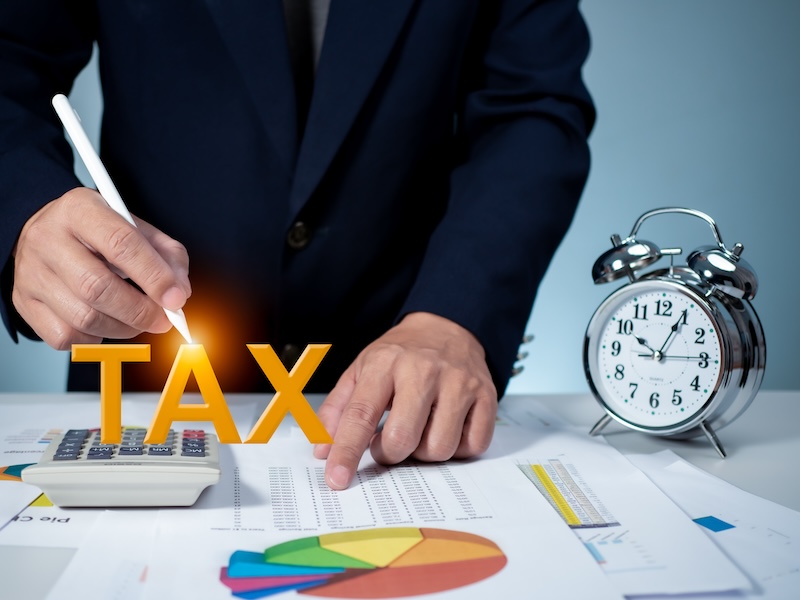
Understanding Singapore’s Corporate Tax System: Key Components and Rates
When it comes to starting a business in Asia, Singapore is often highlighted as a top destination. One of the key factors contributing to this is its business-friendly corporate tax system. With its strategic location, robust legal framework, and pro-business environment, understanding Singapore’s corporate tax system is crucial for any potential investor or entrepreneur. This blog will provide a comprehensive overview of the key components and rates of Singapore’s corporate tax system.
Overview of Singapore’s Corporate Tax System
Singapore’s corporate tax system is known for its simplicity and efficiency. The system is territorial, meaning that only income sourced in Singapore or received in Singapore from outside the country is subject to tax. This principle significantly benefits companies with international operations.
Key Components of the Corporate Tax System
Single-Tier Tax System:
Singapore employs a single-tier corporate tax system. Under this system, corporate income is taxed at the corporate level, and any dividends paid to shareholders are exempt from further taxation. This eliminates the double taxation scenario commonly found in other countries, where both the company and the shareholders are taxed on the same income.
Corporate Income Tax Rate:
The corporate income tax rate in Singapore is a flat 17%. This rate has been stable over the years, providing a predictable tax environment that is conducive to business planning and investment decisions.
Tax Exemptions and Incentives:
- Start-Up Tax Exemption (SUTE): New qualifying companies can enjoy significant tax exemptions on their first three consecutive years of assessment. This exemption is particularly beneficial for small and medium-sized enterprises (SMEs).
- Partial Tax Exemption: All companies can benefit from a partial tax exemption on normal chargeable income up to a certain threshold.
- Industry-Specific Incentives: Singapore offers a range of tax incentives targeted at specific industries, such as finance, shipping, and technology. These incentives are designed to attract investment and promote growth in key sectors. For instance:
- Financial Sector: Incentives include the Financial Sector Incentive (FSI) scheme, which offers concessionary tax rates for qualifying financial activities.
- Shipping: The Maritime Sector Incentive (MSI) provides tax benefits to companies involved in shipping and maritime services.
- Technology: Incentives like the Pioneer Certificate Incentive (PCI) and the Development and Expansion Incentive (DEI) offer tax relief to companies engaged in high-tech and innovative activities.
Group Relief:
Group relief allows companies within the same group to transfer unutilised losses, donations, and capital allowances to other profitable companies in the group. This provision helps optimise the overall tax position of the group, enabling better financial management and resource allocation.
Withholding Tax:
Payments made to non-residents, such as interest, royalties, and service fees, are subject to withholding tax. The rates vary depending on the type of payment but can be significantly reduced or eliminated under Singapore’s extensive network of double tax treaties. These treaties help mitigate the effects of double taxation and facilitate cross-border business activities.
Goods and Services Tax (GST):
Although not a corporate tax, the Goods and Services Tax (GST) is a crucial component of the tax landscape in Singapore. GST is a consumption tax levied on the supply of goods and services, and it currently stands at 9%. Businesses are required to register for GST if their annual taxable turnover exceeds SGD 1 million. Registered businesses must charge GST on their supplies and can claim credits for GST paid on their purchases, thus ensuring that the tax is ultimately borne by the end consumer.
Corporate Income Tax Rates and Rebates
As of 2024, the corporate income tax rate in Singapore remains at 17%. However, the effective tax rate can be significantly lower due to various exemptions and rebates.
- Start-Up Tax Exemption (SUTE): For the first three years, qualifying start-ups can receive:
- 75% exemption on the first SGD 100,000 of normal chargeable income.
- 50% exemption on the next SGD 100,000 of normal chargeable income.
- Partial Tax Exemption: For all companies, this offers:
- 75% exemption on the first SGD 10,000 of normal chargeable income.
- 50% exemption on the next SGD 190,000 of normal chargeable income.
These exemptions significantly lower the effective tax rate, especially for smaller companies and start-ups.
Filing and Compliance
Ensuring compliance with Singapore’s tax regulations is essential for businesses to avoid penalties and optimise their tax benefits. The key aspects of filing and compliance include the annual filing of tax returns and the submission of Estimated Chargeable Income (ECI). Here’s a more detailed look at these requirements:
Annual Filing
Tax Return Submission:
All companies in Singapore are required to file an annual tax return with the Inland Revenue Authority of Singapore (IRAS). This tax return provides a detailed account of the company’s income, expenses, and other financial activities for the assessment year. The standard deadline for filing the annual tax return is November 30th of the following year after the end of the financial year. For example, if a company’s financial year ends on December 31, 2023, the tax return must be filed by November 30, 2024.
Forms Used for Filing:
Companies must use the appropriate form based on their size and complexity:
- Form C-S: A simplified form for small companies that meet specific qualifying conditions, such as annual revenue not exceeding SGD 5 million and deriving income that is taxed at the prevailing corporate tax rate.
- Form C: A more comprehensive form required for companies that do not qualify for Form C-S, often involving more complex tax matters and detailed financial reporting.
Supporting Documents:
Along with the tax return, companies must submit various supporting documents, including:
- Audited or Unaudited Financial Statements: Depending on the size and type of company, audited financial statements may be required.
- Tax Computation Worksheets: Detailed calculations showing how the tax payable has been determined.
- Other Relevant Documents: Any additional documents that support the financial information provided, such as detailed schedules of expenses and deductions.
Estimated Chargeable Income (ECI)
ECI Submission Requirement:
In addition to the annual tax return, companies must submit an Estimated Chargeable Income (ECI) statement to IRAS within three months from the end of their financial year. The ECI is an estimate of a company’s taxable income for the Year of Assessment (YA). For instance, if a company’s financial year ends on December 31, the ECI must be submitted by March 31 of the following year.
Exemptions from ECI Submission:
Certain companies may be exempt from submitting an ECI statement if they meet specific criteria:
- Their annual revenue does not exceed SGD 5 million.
- They have a nil ECI, meaning they do not expect to have any taxable income for the year.
Payment of Estimated Taxes:
Upon submission of the ECI, IRAS will issue a Notice of Assessment, indicating the estimated tax payable. Companies must ensure timely payment of the estimated taxes to avoid interest and penalties. Payment plans or instalment arrangements may be available for managing cash flow.
Revised ECI Submission:
If a company discovers errors or new information after submitting the ECI, it can submit a revised ECI statement. This should be done as soon as possible to ensure accurate tax assessment and avoid discrepancies.
Penalties and Compliance
Late Filing Penalties:
Failure to meet the filing deadlines for the annual tax return or ECI can result in penalties. IRAS may impose fines, issue summonses, or even initiate prosecution for persistent non-compliance.
Accuracy and Honesty:
It is imperative that companies provide accurate and complete information in their tax returns and ECI statements. Misstatements, omissions, or fraudulent claims can lead to significant penalties, interest on unpaid taxes, and potential legal consequences.
Staying Updated:
Tax regulations and compliance requirements can change. Companies must stay informed about any updates from IRAS to ensure ongoing compliance. Subscribing to IRAS updates or working with a tax professional can help keep the company compliant.
By adhering to these filing and compliance requirements, companies in Singapore can effectively manage their tax obligations, minimise their tax liabilities, and take advantage of the various tax incentives and exemptions available. Proper compliance not only avoids legal issues but also ensures that businesses can operate smoothly and focus on their growth and development.
Conclusion
Singapore’s corporate tax system is designed to be straightforward and attractive, encouraging both local entrepreneurship and foreign investment. With its relatively low tax rates, numerous exemptions, and industry-specific incentives, Singapore remains a prime location for businesses looking to establish a foothold in Asia. Understanding these key components and rates can help businesses effectively navigate the tax landscape and maximise their opportunities in this dynamic market.
However, navigating any tax system, even one as well-designed as Singapore’s, can be complex and time-consuming. This is where a corporate service provider can be invaluable. These professionals offer expertise in local tax laws, ensuring compliance and optimising tax benefits. They can assist with the preparation and filing of tax returns, help in understanding and applying for available tax incentives, and provide strategic advice to minimise tax liabilities.
Additionally, corporate service providers can support businesses with ongoing tax planning and structuring, allowing companies to focus on their core operations while ensuring their tax affairs are in order. By leveraging the expertise of a corporate service provider, businesses can effectively manage their tax responsibilities and fully capitalise on the advantages offered by Singapore’s corporate tax system.
Ready to Take Your Business to the Next Level?
Whatever your query or requirement, we’re here to help. Contact CS Supreme today to discuss how we can support your business needs.

Our Services
Quick Links
- About Us
- Contact Us
- Privacy Policy
Get in touch
152 Beach Road, #23-01, Gateway East, Singapore 189721
Copyright © 2024 CS Supreme Pte Ltd. All rights reserved.


